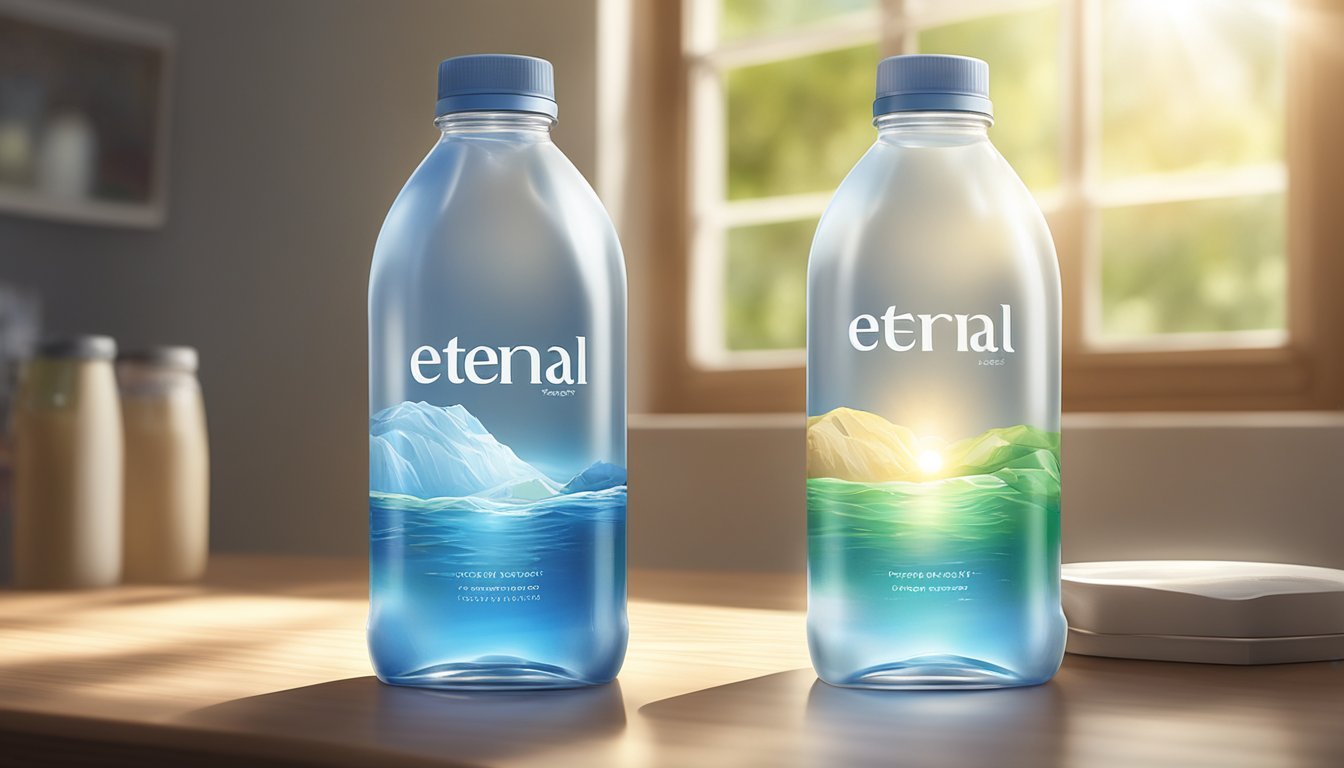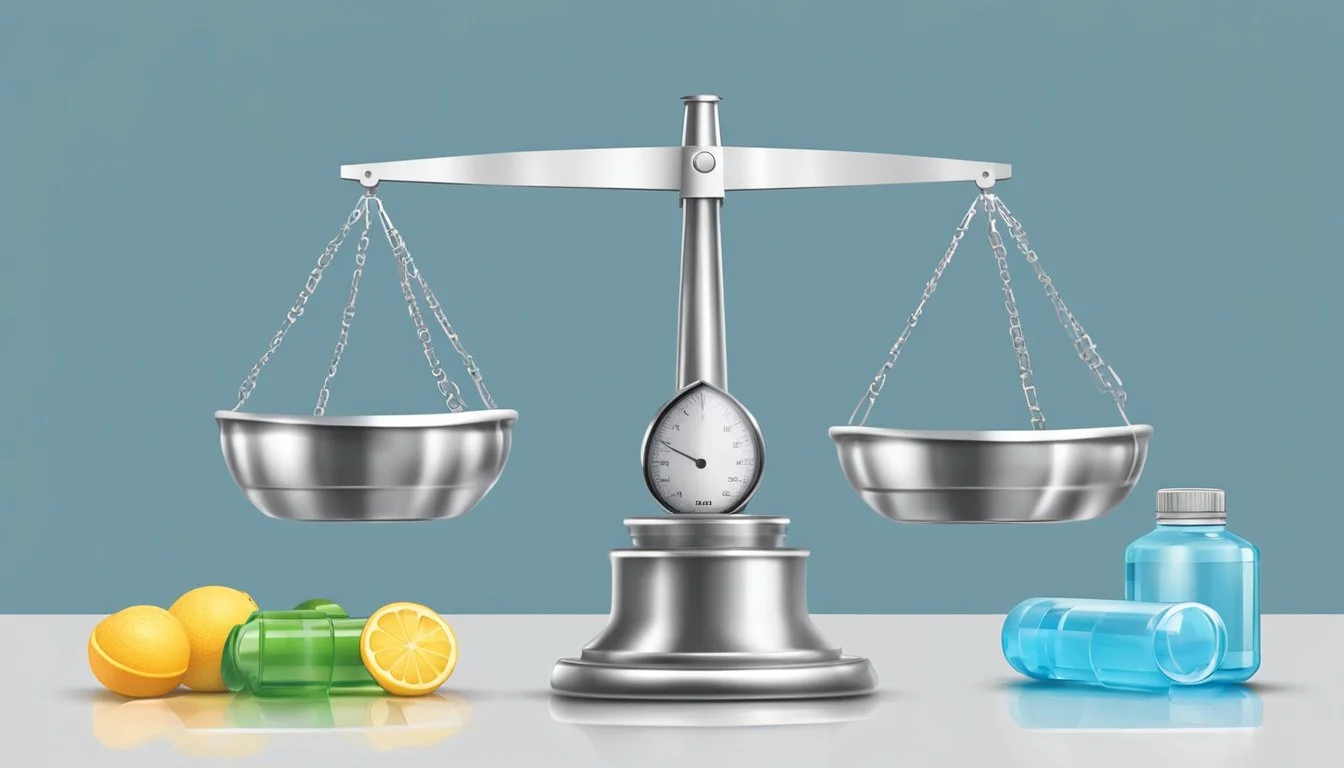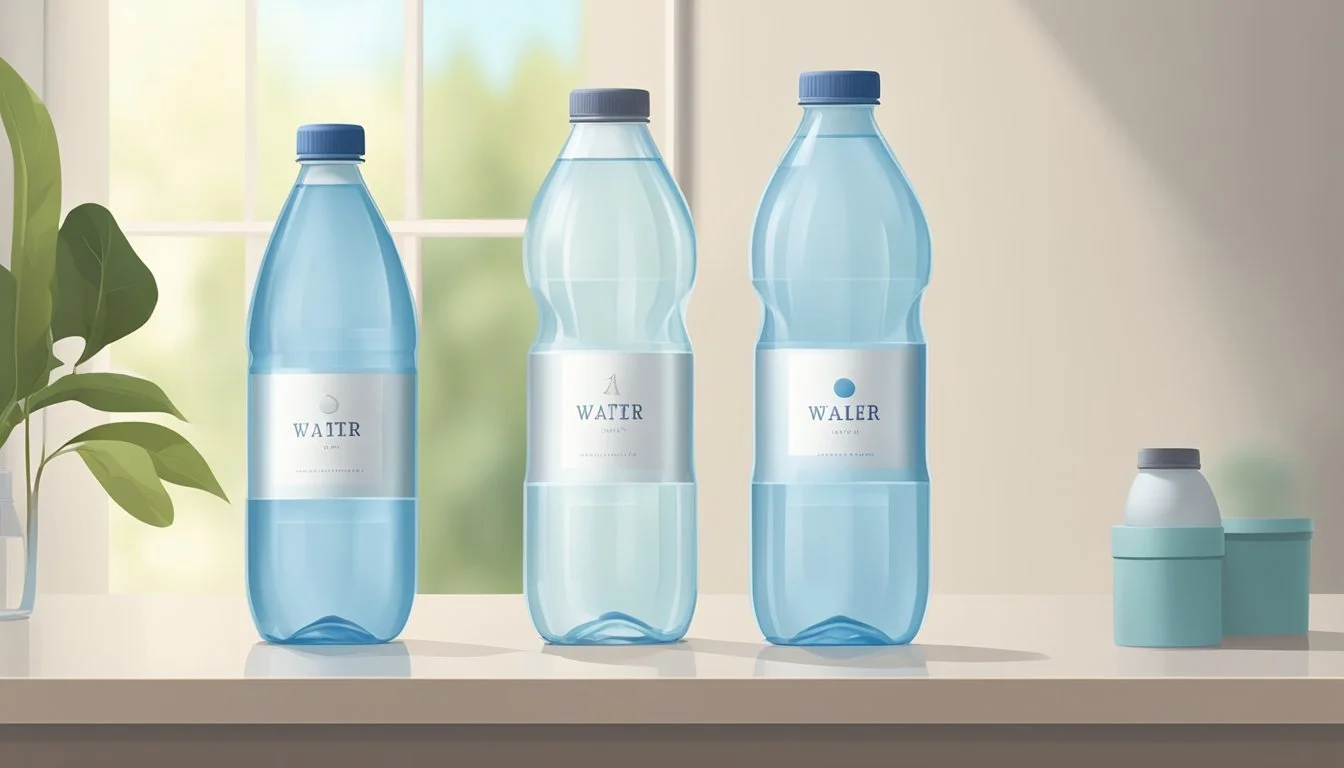Eternal vs. Just Water
Comprehensive Comparison of Bottled Water Brands
The marketplace for bottled water has expanded significantly with numerous brands promising not only hydration but also an array of health benefits. Among these brands, Eternal Water and Just Water have emerged as popular choices for consumers seeking quality bottled water. Eternal Water touts its natural alkalinity and mineral content, claiming a composition that confers superior hydration. The brand's water is sourced from protected underground springs and boasts a pH balance that supports overall wellness.
On the other hand, Just Water puts an emphasis on its eco-friendly packaging and ethical sourcing. The company highlights the use of renewable materials in its cartons and its commitment to reducing carbon footprint. Just Water sources its water from a community in upstate New York, providing a product that prides itself on both its environmental consciousness and its clean, pure taste. As consumers become increasingly aware of the environmental impact of their purchases, Just Water's sustainable approach positions it as an ethical choice in the bottled water sector.
When choosing between Eternal Water and Just Water, consumers must consider multiple factors, including the purity of the water, the taste, the pH level, and the environmental impact of the packaging. Both brands aim to deliver not just hydration but also a healthier and more sustainable water consumption experience. Thus, the decision ultimately boils down to personal preferences and values regarding health and environmental sustainability.
Understanding Bottled Water
When considering bottled water options such as Eternal and Just Water, it is essential to understand the types of bottled water, the sources they come from, and their impacts on health and the environment.
Defining Bottled Water Types
Bottled water is categorized according to its origin and treatment methods. Spring water originates from natural springs and is often touted for its mineral content and taste. On the other hand, purified water, which may start as tap or groundwater, goes through processes such as reverse osmosis or distillation, resulting in a product labeled as pure due to the removal of chemicals and minerals.
Evaluating Water Sources
The source of bottled water plays a crucial role in its final quality. Spring water is collected from natural springs, where water flows to the surface from an aquifer. Groundwater sources are also common, but the quality can vary based on the surrounding soil and rock, which affect mineral content and potential contaminants. Companies often emphasize sustainability practices, such as responsible sourcing and minimal impact extraction methods, to appeal to environmentally conscious consumers.
Health and Environmental Impact
Bottled water's impact on health and the environment is a growing concern. While the minerals found in natural spring water can offer health benefits, potential chemicals from various sources or packaging materials raise safety questions. Additionally, the environmental impact of single-use plastic bottles has led to calls for increased sustainability efforts in packaging, such as using recyclable materials and reducing the carbon footprint of production and transportation.
Eternal Water: An Overview
Eternal Water is revered for its natural origin and its contribution to hydration and wellness. It comes directly from sources tucked away in the remote landscapes, ensuring a blend of purity and natural minerals.
Source and Composition
Eternal Water sources its contents from protected underground springs within the Shasta-Trinity Alps. The water is naturally alkaline, which means it has a pH that is higher than neutral. As it filters through layers of volcanic rock, the water gathers a unique mineral content, which enhances its taste and contributes to its health benefits.
Origin: Shasta-Trinity Alps
Water Type: Natural spring water
pH Level: Typically above 7, alkaline
Mineral Content: Includes electrolytes like calcium, magnesium, and potassium
Purification Process and Benefits
The purification process of Eternal Water ensures its cleanliness without compromising its natural state. Eternal Water is bottled at the source and undergoes minimal processing. The brand emphasizes the water's ability to provide optimal hydration due to its mineral-rich composition. Each bottle of Eternal Water brings a piece of the Shasta-Trinity Alps to the consumer, delivering hydration that is both pure and supplemented by the natural minerals that are beneficial for health.
Purification: Natural filtration through volcanic rock
Processing: Minimal, maintaining natural state
Key Benefits: Optimal hydration, rich in minerals
Just Water: An Overview
Just Water is a brand known for its commitment to sustainability and ethical sourcing. It offers consumers a product that aims not just to quench thirst, but also to do so in an environmentally responsible way.
Source and Composition
Just Water sources its spring water from the Adirondack Mountains in upstate New York. The water is touted for its purity and taste, which is the result of the natural filtration through limestone. This process enriches the water with a balanced mineral composition. Just Water emphasizes the use of a carbon filtration process to ensure the removal of impurities while retaining essential, naturally occurring minerals.
Sustainable Packaging and Benefits
The brand prides itself on utilizing sustainable packaging, which includes a paper-based carton comprised of 82% renewable resources. These cartons are resealable and refillable, designed to reduce plastic waste significantly. They are also made from BPA-free plastic, which ensures that the water does not come into contact with potentially harmful chemicals.
Sustainable Benefits:
Reduces plastic use
Minimizes carbon footprint with renewable materials
Just Water's approach is rooted in the belief that business practices can be both beneficial to the environment and economically viable, offering consumers a boxed water option that stands as a testament to sustainable advancements in the beverage industry.
Quality Assessment
In evaluating bottled water brands like Eternal and Just Water, key factors such as pH levels, mineral content, and the overall sensory experience are critical. Each aspect plays an essential role in determining the perceived quality of water for consumption.
pH Levels in Water
Eternal Water prides itself on offering alkaline water with a pH level above 7, often around 7.8 to 8.2, which is claimed to support better hydration and other health benefits. In contrast, Just Water reports a pH level closer to neutral—typically around 8.0. While both brands provide pH levels that are considered alkaline, which may be preferred by those seeking to balance dietary acidity, it should be noted that the body tightly regulates its pH balance, regardless of the water consumed.
Mineral and Electrolyte Content
Eternal Water:
Minerals: Naturally occurring calcium, magnesium, and potassium
Electrolytes: Beneficial electrolytes, owing to its spring source
Just Water:
Minerals: Contains calcium, magnesium, and bicarbonates
Electrolytes: A modest but balanced electrolyte profile for hydration
Both brands offer mineral and electrolyte contents that contribute to taste and hydration. However, Eternal Water often highlights its rich mineral blend that is due to its protected underground sources and natural filtration.
Taste and Purity Factors
Purity is a paramount concern for both brands, with Eternal Water touting its untouched, pristine source and Just Water emphasizing its responsibly sourced springs and eco-friendly packaging. Consumer reports suggest that both brands deliver on a clean, refreshing taste with subtle differences attributable to their unique mineral contents. Taste tests generally reveal a preference for a smooth and clean flavor profile, which both brands strive to offer.
Health and Hydration
In examining Eternal and Just Water, it is crucial to focus on how they contribute to hydration and any potential health benefits they offer due to their unique properties.
Hydration and Electrolyte Balance
Both Eternal and Just Water provide hydration, which is essential for maintaining bodily functions. Eternal Water, as a naturally occurring alkaline water, contains various minerals like calcium, potassium, and magnesium that can help maintain electrolyte balance in the body. These minerals are vital for hydration as they support nerve function and muscle contraction.
Just Water, on the other hand, boasts of being sourced from spring water that includes a balance of naturally occurring electrolytes for hydration. It is also packaged in a plant-based carton, which emphasizes environmental sustainability but does not directly influence hydration.
Potential Health Benefits
Ionized water, such as the alkaline water provided by Eternal, claims to offer health benefits like supporting antioxidants and neutralizing free radicals. Proponents suggest that the higher pH level of Eternal Water can benefit one’s metabolism and overall wellness. However, it is important to note that most health experts affirm that the body naturally regulates pH levels effectively.
Just Water does not particularly market itself on its antioxidant properties or metabolism benefits, but by offering pure water without additives, it caters to consumers looking for a straightforward hydration choice with minimal processing.
Both brands meet the fundamental need for hydration without making exaggerated health claims. Their unique selling points are secondary to the primary goal of providing clean and safe drinking water.
Comparative Analysis
This section provides a focused comparison of Eternal and Just Water, two prominent bottled water brands. The analysis considers economic factors, environmental impact, and marketing strategies to guide consumers in making an informed choice.
Economic Consideration
Eternal Water typically commands a higher price point, often reflecting its mineral-rich content and claims of health benefits. In grocery stores, consumers may notice the price variance with Eternal often being costlier than standard drinking waters due to its alkaline nature and reported hydration advantages.
Just Water, on the other hand, positions itself as an affordable premium water. It is priced competitively, making it accessible to a broader market. Just Water emphasizes its packaging, which includes plant-based plastic bottles that are supposed to reduce manufacturing cost and environmental footprint.
Brand Cost per Bottle Availability Eternal Water Higher Select Retailers Just Water Competitive Widely Available
Environmental Responsiveness
When it comes to environmental responsibility, Just Water makes a strong case. Its bottles are made from 82% renewable resources, including sugarcane, thereby reducing reliance on fossil fuels used in traditional plastic bottles. Just Water's filtration process, which relies on less energy-intensive methods, further underscores its commitment to sustainability.
Eternal Water focuses on the natural purity of its source and does not prominently market its environmental initiatives. There are no specific claims about the use of sustainable materials in its packaging, which leaves consumers with less information on the brand's environmental impact.
Marketing and Branding
In terms of marketing and branding, both brands have distinct strategies. Eternal Water markets itself on the natural origins and health benefits of its alkaline water. The brand's messaging often revolves around purity and the presence of naturally occurring electrolytes and minerals.
Just Water leverages a strong brand message centered on environmental stewardship and social responsibility. Its notable branding and packaging design stand out on the shelves and appeal to environmentally conscious consumers. The association with celebrity influencers and the emphasis on ethical practices are key aspects of Just Water's marketing approach.
Both brands have utilized direct and indirect marketing, making use of social media platforms to reach their target demographics. However, their branding narratives cater to different consumer values -- health and wellness for Eternal, sustainability, and ethics for Just Water.
Consumer Perspectives
When considering Eternal and Just Water brands, consumer perspectives often hinge on customer satisfaction and reviews along with the brands' standings in ranks and preferences determined by taste and other qualities.
Customer Satisfaction and Reviews
Eternal Water draws customers with its naturally alkaline spring water that is believed to contain health benefits due to its mineral content. Reviews frequently highlight the smooth and fresh taste which contributes to its customer satisfaction. Just Water, on the other hand, is praised for its environmentally conscious packaging and for having a clean taste. It's not uncommon to see that customers who prioritize sustainability tend to favor Just Water.
Ranks and Preferences
When ranked from worst to best among other bottled waters, both Eternal and Just Water perform well in terms of taste—a key factor in consumer preference. The preferences vary greatly depending on individual tastes and the importance placed on product attributes such as environmental impact. Some may rank Just Water higher due to their ethical approach, while others prefer the mineral composition and taste profile of Eternal Water.
Regulation and Safety
In the realm of bottled water, regulatory frameworks ensure that products like Eternal and Just Water adhere to rigorous safety and quality standards. These regulations are essential to maintaining consumer trust and public health.
FDA Standards and EPA Guidelines
The U.S. Food and Drug Administration (FDA) governs the safety and labeling of bottled water, including brands like Eternal and Just Water. It enforces standards as stringent as the Environmental Protection Agency's (EPA) regulations for tap water. The FDA's specific bottled water standards include:
Standard of Identity: Defines different types of bottled water (e.g., spring water, mineral water).
Standard of Quality: Specifies permissible levels of contaminants.
Good Manufacturing Practices (GMPs): Ensures that bottles and the filtration process meet sanitary standards.
Eternal and Just Water, like all bottled waters, must comply with these FDA standards. Furthermore, they must also adhere to certain EPA guidelines, like maximum contaminant levels, which apply to public water systems to ensure tap water safety.
Contaminants and Purification
Chlorine and heavy metals like lead are potential contaminants in both tap and bottled water. The purification of bottled water often involves multiple stages, which may include:
Filtration
Reverse osmosis
Ozonation
These processes aim to remove or reduce the presence of contaminants, though the specifics can vary based on the source and brand. Eternal and Just Water must regularly test for contaminants and follow strict protocols to ensure that their bottled water products are safe for consumption, meeting or exceeding FDA regulated safety standards.
Bottled Water Alternatives
In exploring alternatives to Eternal and Just Water bottled brands, one needs to consider tap water, reusable water containers, and home filtration systems. These options provide cost-effective and environmentally sustainable methods to stay hydrated.
Tap Water Versus Bottled Water
Tap water in many regions is strictly regulated for safety and can be a reliable source of hydration. When comparing to bottled water, tap water is significantly less expensive and has a lower environmental impact due to lack of packaging. Glass bottles can be used to store tap water, which can then be refrigerated to improve taste. Here, the choice between distilled water and tap water largely hinges on local water quality and personal preference.
Tap Water: Usually regulated, cost-effective, and widely available.
Bottled Water: Convenient, but more expensive and with greater environmental impact
Reusable Water Containers
Reusable water containers provide a long-term solution for those looking to reduce their environmental footprint. They come in various materials, such as stainless steel, glass, or BPA-free plastic, with glass bottles being a popular choice for those wanting to avoid the potential for leaching chemicals. They are often designed to keep water cold and are ideal for use with both tap water and filtered water.
Materials: Stainless steel, glass, BPA-free plastic.
Benefits: Eco-friendly, cost-effective over time, versatile.
Home Filtration Systems
Home filtration systems, such as reverse osmosis units, can purify tap water, removing contaminants and undesirable tastes or odors. These systems range from simple pitcher filters to under-the-sink modules and often entail an initial investment which pays off over time. Filtration can give the peace of mind of clean and safe water without the continuous purchase of bottled water.
Reverse Osmosis: Effectively removes a wide range of impurities.
Pitcher and Faucet Filters: Convenient, improve taste, remove certain contaminants.
Conclusion
When consumers are presented with the choice between Eternal and Just Water, the decision hinges on several factors: purity, hydration, and sustainability.
Eternal Water boasts a mineral-rich composition due to its source, offering a high level of purity and hydration benefits. Its alkaline nature contributes to its claim for improved hydration. However, specifics such as the source's environmental impact and packaging are essential considerations for consumers prioritizing sustainability.
On the other hand, Just Water prides itself on its eco-friendly packaging and sustainability practices. Its fully recyclable carton and the use of responsibly sourced water underscore this commitment. While above-average in hydration, Just Water may not match the mineral content boasted by Eternal.
For pure hydration, Eternal may be the preferable choice for consumers due to its mineral content and pH level. In contrast, those valuing sustainability as a paramount factor could lean towards Just Water for its environmental ethos.
It should be noted that choices always vary on a case-by-case basis, influenced by individual tastes and the specific water quality in consumers' local areas. Both brands offer a distinct set of advantages, and consumers should weigh these against their personal values and needs.
The conversation around bottled water – particularly comparing Eternal and Just Water – is shaped by an intersection of these key considerations, without a one-size-fits-all conclusion.







